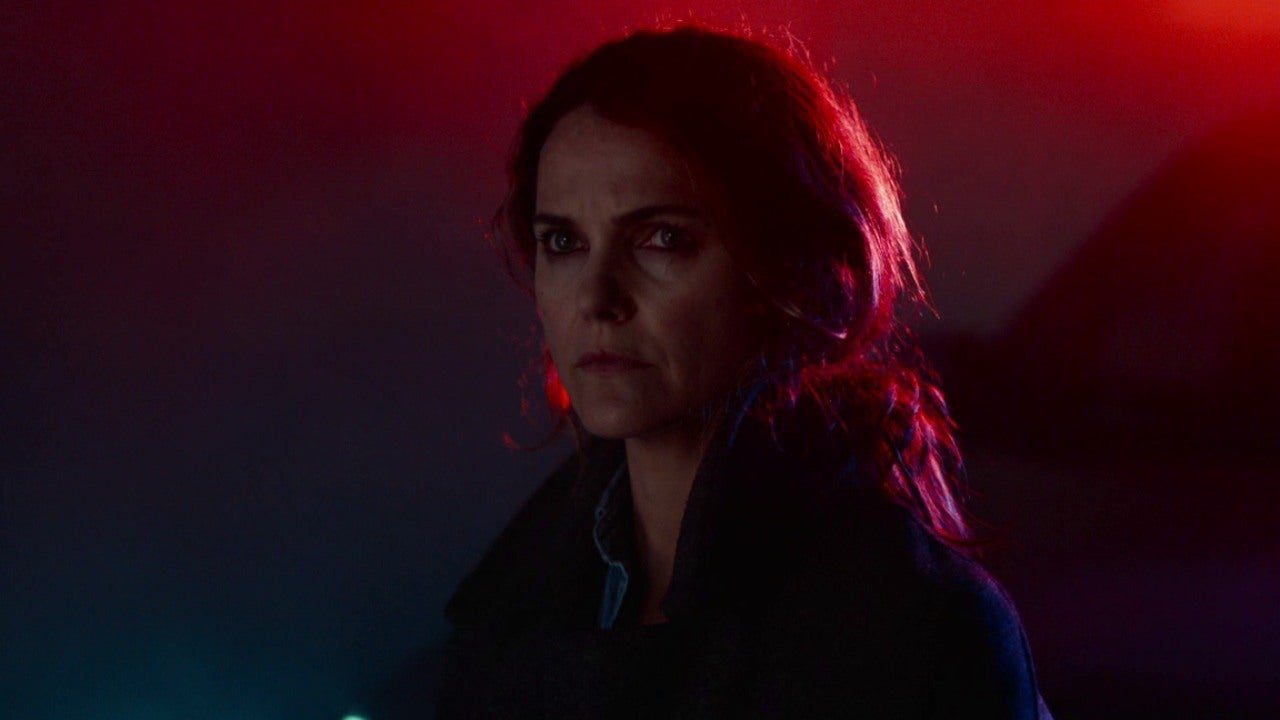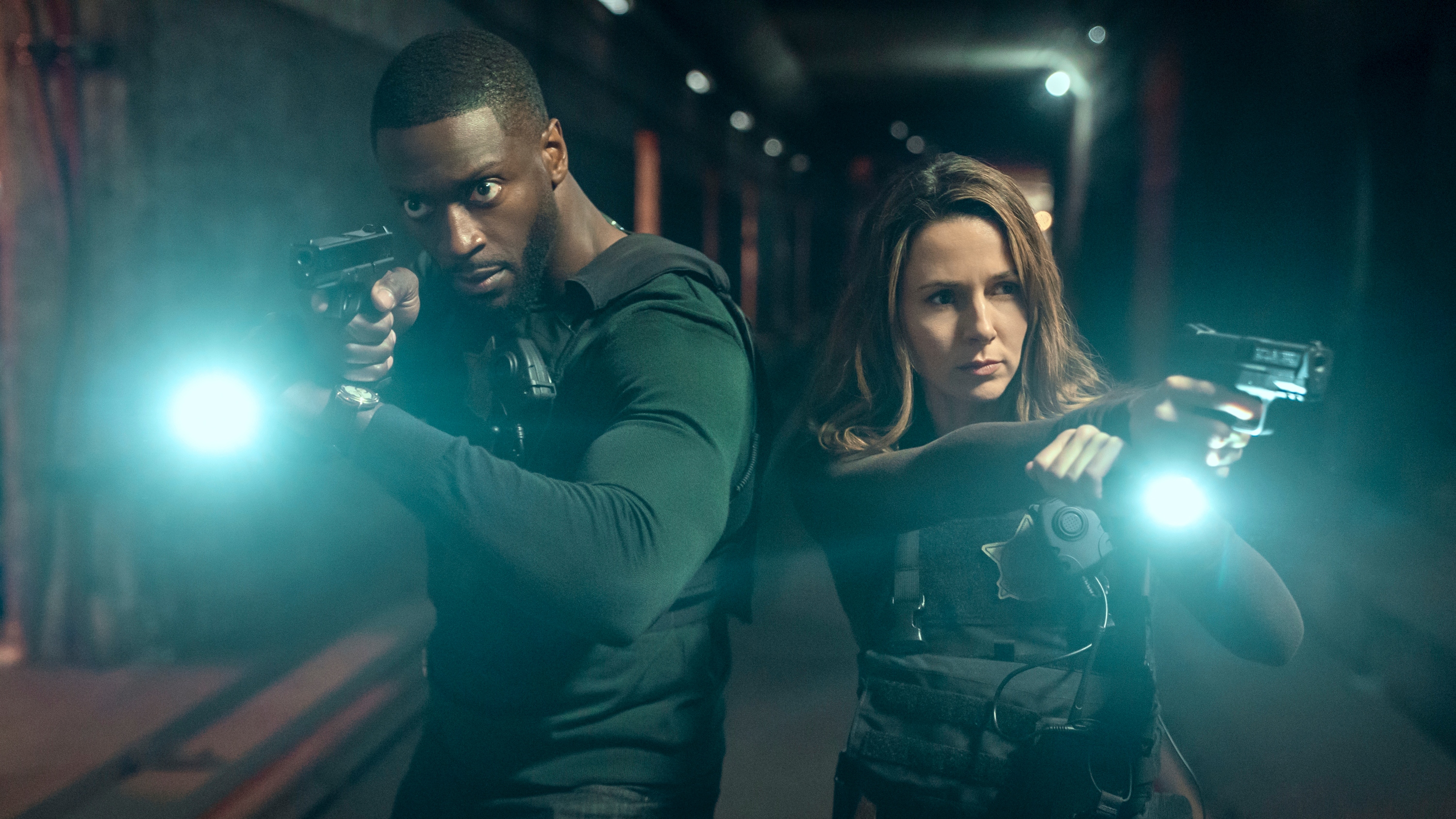What to Watch Verdict
'Antlers' is a monstrous woodland fable that's defined by highs and lows, as dazzling cinematography accentuates an otherwise underdeveloped creature experience at odds with its core conflict around emotional trauma.
Pros
- +
🦌 Blues and reds are such a blast of color
- +
🦌 Looks top-notch
- +
🦌 Says a lot about trauma and abuse
Cons
- -
🦌 Better at introductions than exits
- -
🦌 Shifty scare composition
- -
🦌 Ponders aloud too much
Scott Cooper’s Antlers started as countless moviegoers’ most anticipated horror film of 2020 and, after a curiously silent sideline wait for its October 2021 release, will top some critics’ best-of lists this year — but not unanimously.
Producer Guillermo del Toro opened the Beyond Fest screening I attended with a brief introduction that waxed romantic about '80s literary horror approaches on-screen, meant to set our expectations for Antlers. It’s adapted from Nick Antosca’s short story “The Quiet Boy” and favors Americana folklore rooted in our country’s forgotten pockets. Cooper establishes coastal Oregon through mineshafts, meth hideouts and Native American mythologies as an attempt at ponderous horror that asks questions it doesn’t necessarily want to answer. A collaborative screenplay between Cooper, Antosca, and Henry Chaisson uses hunter-killer creature stakes as a metaphor for confronting traumatic abuse — emotional and physical — but it’s an unbalanced exercise. The movie cares more about introducing moods than seeing all development angles through until the end.
Julia Meadows (Keri Russell) is a small-town Oregon teacher who’s back home living with her sheriff brother Paul (Jesse Plemons). One of Julia’s students — Lucas Weaver (Jeremy T. Thomas) — draws attention due to abuse red flags. Julia knocks on Lucas' front door unannounced and hears guttural growling coming from inside the residence. Paul later remarks about Lucas’ father Frank (Scott Haze) being a no-good junkie who’s one overdose away from the grave but is still deemed fit to raise Lucas and little brother Aiden (Sawyer Jones). Julia refuses to accept such endangerment, so she pushes others to rescue Lucas from his unstable homelife, which is precisely when mutilated corpses start filling morgue coolers.
Credit to Florian Hoffmeister’s cinematography, because Antlers is a stunning plethora of lighting choices and shot composure. Darkness cloaks forested highways and labyrinthian coal shafts with only Paul’s patrol car reds-n’-blues or fiery flares saturating figures in reddened haziness. Visuals succumb to the alarming nature of woodland dangers from Native American Wendigo nightmares, while Hoffmeister captures the rural desolation of an American community ravaged by impoverished despair. I thought about It Comes At Night frequently during Antlers, the way Hoffmeister’s lens peers into the darkness and flees from an almighty unknown — fluttering embers, despicable crime scenes and Nowheresville mountain landscapes become the visual signatures of a rather gorgeously grim journey.
Antlers is a spiritual summoning of Mother Earth’s defenders — we’ll get there — but centers on Julia’s overwhelming desire to save Lucas (instinctual based on her own suffered, family-bred abuse). How Lucas protects whatever’s pounding against a door with multiple bolt locks is a representation of immense undertakings that linger in a child’s recesses far after the suffering concludes. It’s an arc that carries weight and yet struggles to balance the textbook Wendigo mythos in equal bounds. Graham Greene is used as a token Native American information dump to introduce white saviors to Wendigo fearfulness, which gets brushed under a third-act rug based on a decision to serve Julia’s retribution solely.
I understand that everything exists as a vehicle for Julia’s conquering of unshakable memories from a haunted childhood. Still, the climax wonkily juxtaposes attacks and acknowledgment as Cooper pushes back against the A Quiet Place berzerker vibes that prior tension relies on to amplify intensity.
That’s where Antlers loses points and ultimately fails itself — Cooper’s better at understanding the horrors of humanity when he’s not outright trying to compose straightforward horror narratives. An opening tunnel sequence is a blurry swirl of hyper cuts and handgun flashes that underserve an introductory massacre. Mangled, chewed and mauled cadavers are Hannibal-quality disgusting, yet the visual device of gored bodies missing chunks of muscle tissue or rib cage rows becomes a misdirect away from the persistently contemplative emotional terrors.
The latest updates, reviews and unmissable series to watch and more!
Cooper honors the tried-and-true Jaws method of hiding your aggressor until zero hours with a practical effects staredown between Julia and this demonic deer with a man’s fleshy facemask like mortal mockery, however, it feels too late given the multiple out-of-view teases and quietness prior. Strangely enough, the experience can be carnivorously brutal and yet squander impact as scenes sway between psychological duress and ferocious animalistic attacks without ever finding the same fluid speed.
My frustration with Antlers stems from standout elements — cinematography, Keri Russell’s strength of presence, supernatural associations to mental health — that aren’t fully conceptualized beyond their atmospheres. The more Julia addresses her sexually explicit scars, the more Paul hunches over another gnawed-bone-clean victim, the more we ready ourselves for an ending that humbly bows as Mike Flanagan might — except Cooper isn’t Flanagan.
Antlers exists in the nebulous area between vulnerable arthouse horror and primal folklore confrontation, where ideals float like bubbles that burst before merging with other delicately hovering concepts. Everything is explained, and this isn’t a “plot hole” takedown — Antlers just isn’t all that thoughtful as it lets on, made evident by its cut-and-run exit.
Antlers will be released exclusively in theaters on Oct. 29.
Matt Donato is a Rotten Tomatoes approved film critic who stays up too late typing words for What To Watch, IGN, Paste, Bloody Disgusting, Fangoria and countless other publications. He is a member of Critics Choice and co-hosts a weekly livestream with Perri Nemiroff called the Merri Hour. You probably shouldn't feed him after midnight, just to be safe.


